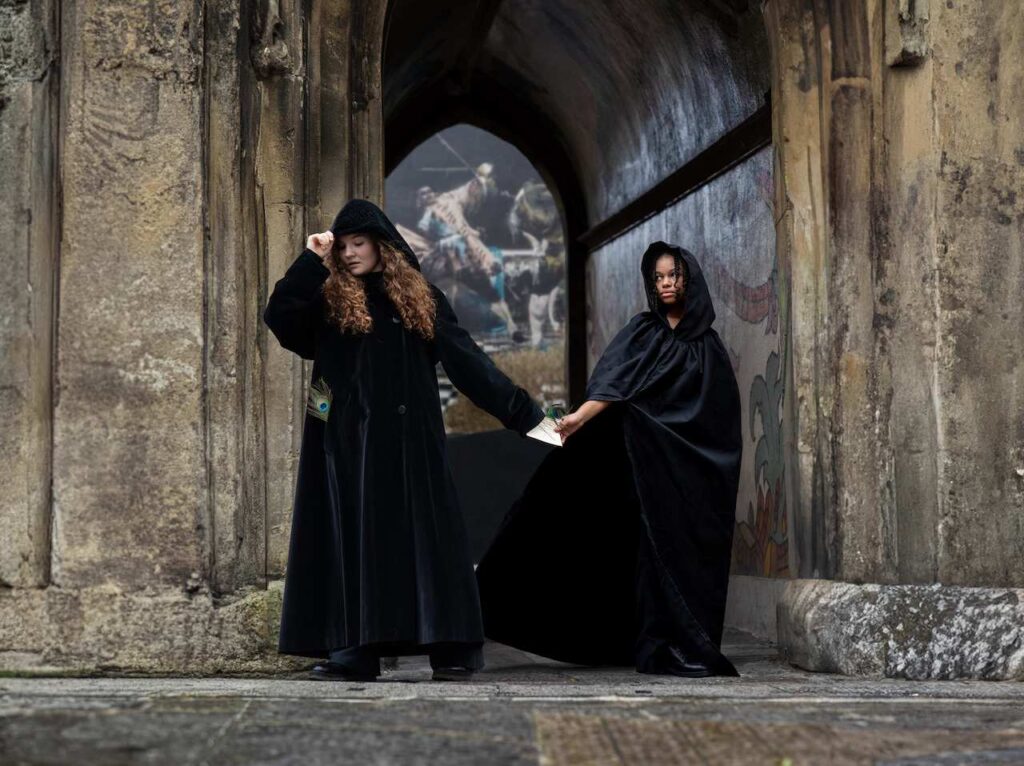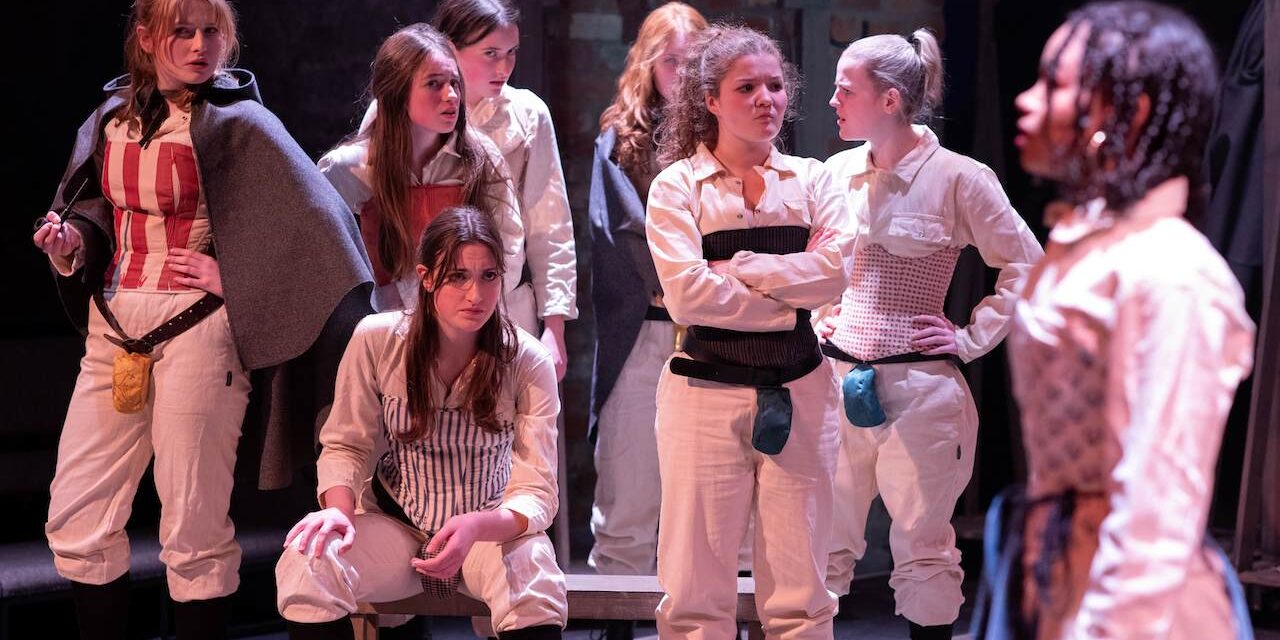
10 – 13 January
One of the Bristol Old Vic Theatre Young Company’s aims is to allow young people to find their voice and make work that reflects the world they live in. In this adaptation of The Roaring Girl they explore suggestions hidden in Thomas Dekker and Thomas Middleton’s Jacobean comedy. Director Hope Thain acknowledges the difficulties that such a play presents, with its challenging language, bizarre action and deeply traditional gender roles. However, what she and the company have produced skilfully explores the unusual complexity within the main protagonist, Moll Cutpurse.
Moll is the governess of the city’s underworld, leading a gang of similar ‘roaring girls’ who eschew conformity. They sport men’s breeches, smoke pipes and wear (very prominent) codpieces. What follows is a series of plots aimed to destabilise the patriarchy and the rigid rules of society that proclaim that a young man must marry his father’s choice of a wife, rather than his own.
Moll is played with great authority, and often with a knowing smirk on her face, by Elowen Faulkner and she perfectly conveys the leadership qualities that others clearly seek. The gushing Sir Alexander Wengrave and his acolytes interpret her individualism as signs of low morality and seek to trap her into stealing items of his property.
His son, the somewhat intense Sebastian, played by Sebastian Stevens, wishes to marry Mary (Jasmine Gwatkin) a woman of lower birth. Society is further disrupted by the activities of a band of strong, unconventional women working in retail services favoured by the fops and higher sections of society.
Although the piece has been adapted, and fitted into a Bristolian context, much of the seventeenth century text remains and the company create a unique work while remaining true to the original. Gender fluidity features heavily, and the push against binary is deployed as a tool to also explore the threads within the text around roles, power and ultimately freedom.
The constancy of the human condition is well portrayed, and many of the jokes and asides resonate with a modern audience. What Is especially impressive is the cast’s total commitment. Every character was invested with meaning which allowed individual cameos to shine with Fabio Campus’ gender swapping Jack Dapper, Daisy Dimbleby’s earnest Agnes, and Gabe Norris’ deceitful Trapdoor each taking their moment in the light. Betsy May Wright’s flirting Mistress Gallipot often took centre stage and was handled impressively.
The large cast of seventeen is expertly marshalled and so adroit that scenes run fluidly and the set is transformed in a trice. The use of large wheeled frames may at times be overdone, but they perform a variety of swift transformations. Credit must also go to Jack Drewry’s understated soundtrack, and general all-round movement choreographed by Laila Diallo.
★★★★☆ Bryan J Mason, 12 January 2024
Photo credit: James E. Davies


